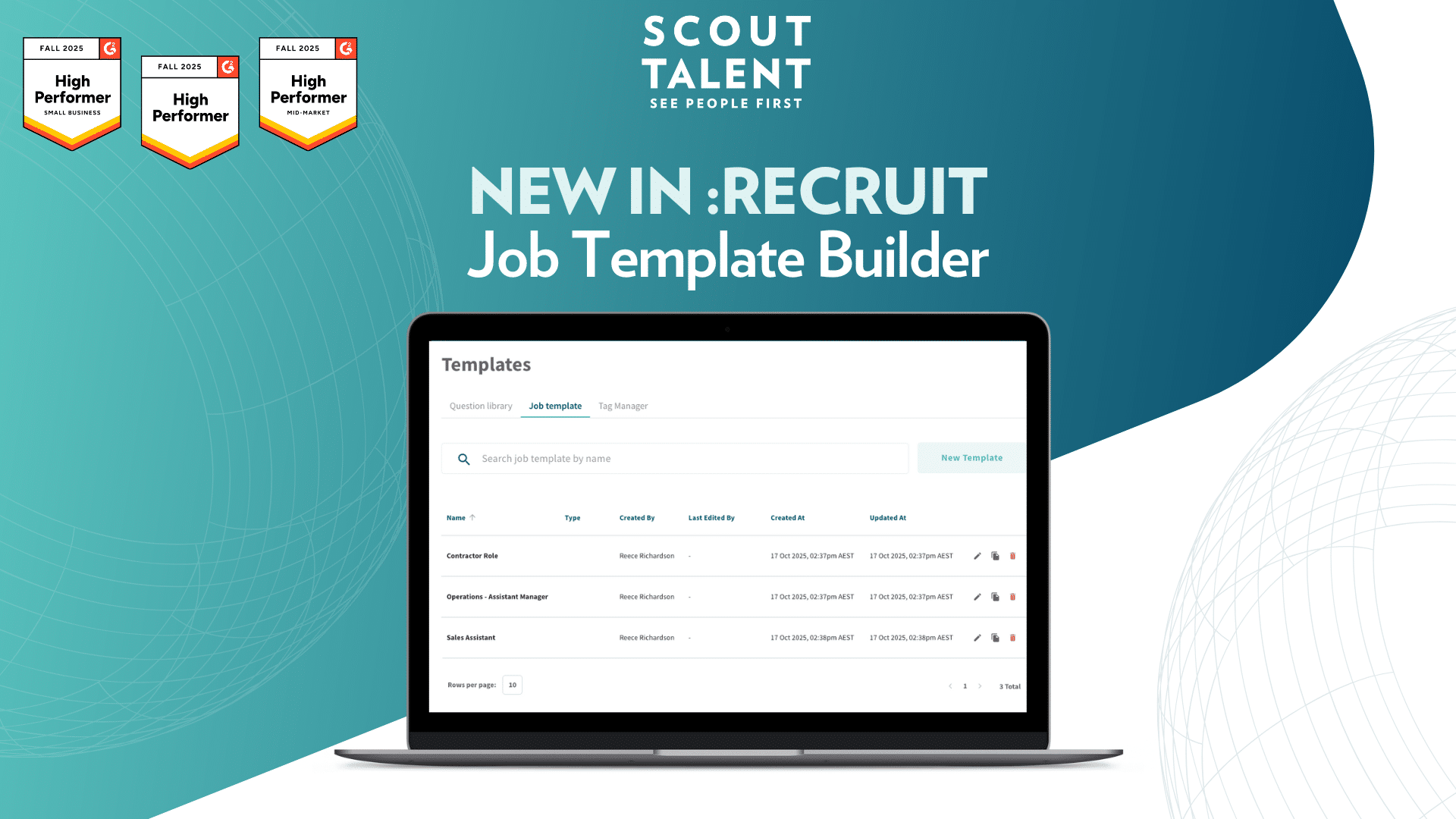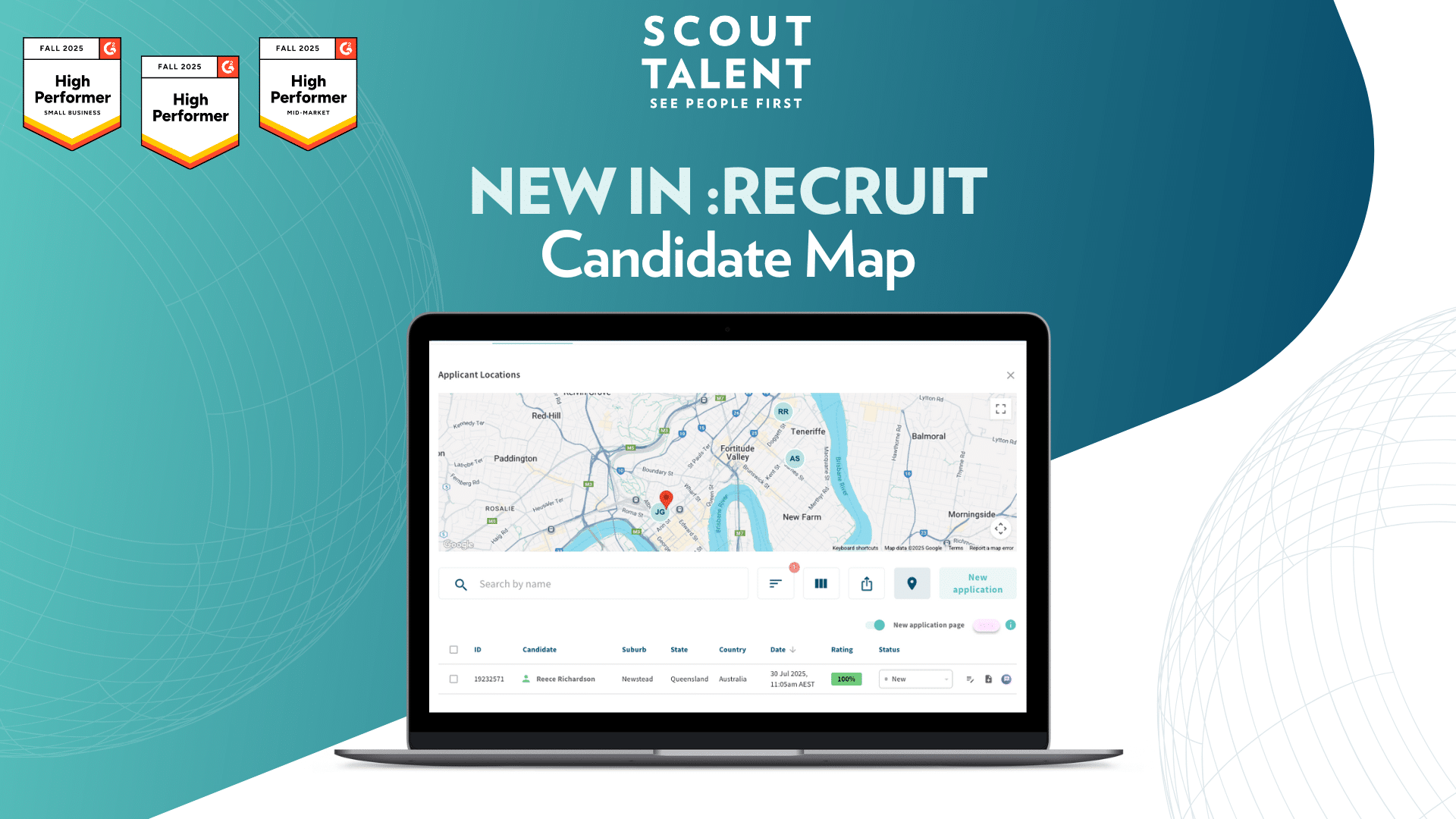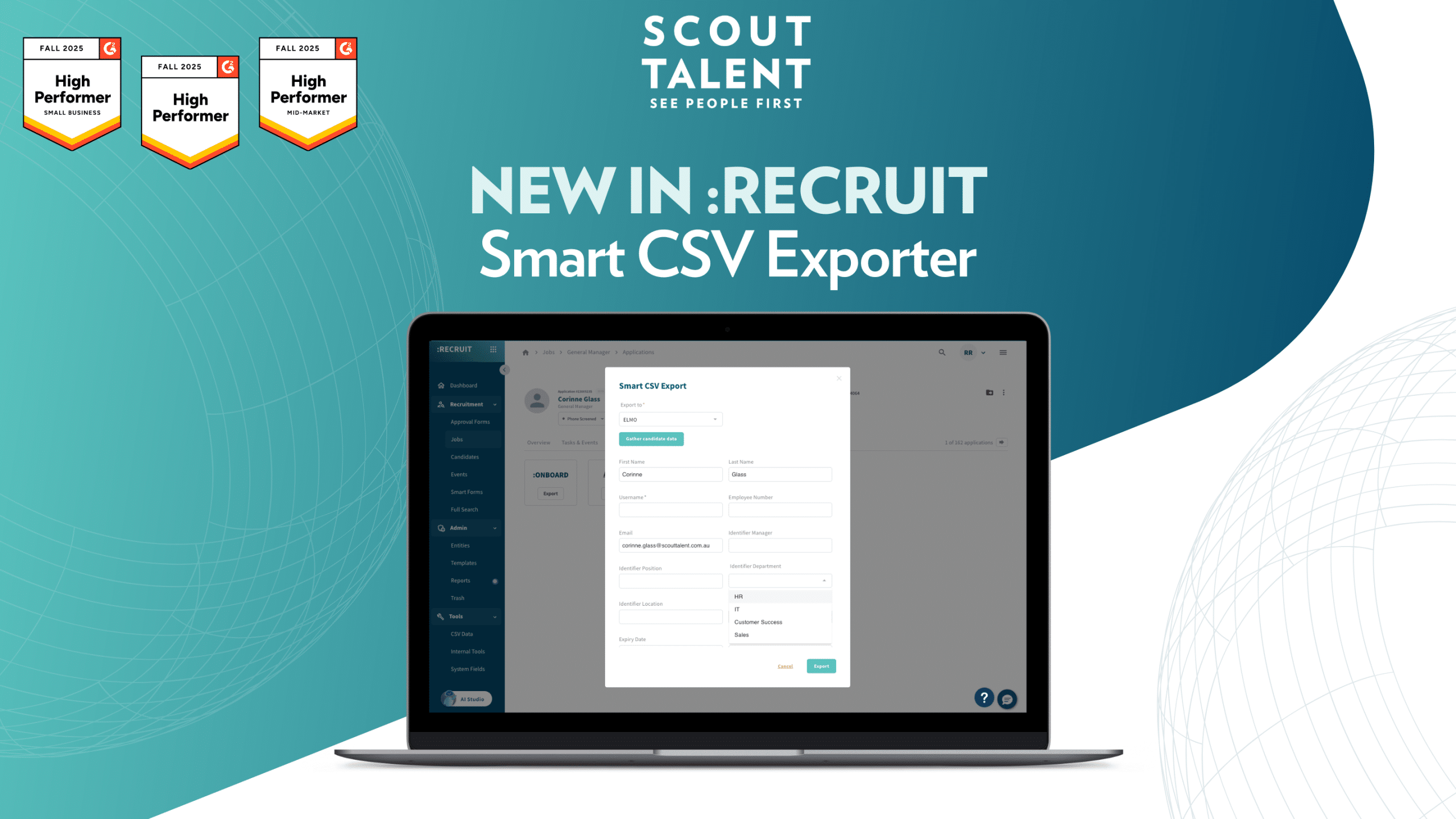We are all probably are aware of it by now, but on the off chance that you’ve been living under a rock, the current climate with Covid-19 has forced us all to become much more comfortable with using technology in our recruitment processes. For a lot of hiring managers, making a decision to hire without actually meeting someone face to face is a daunting concept and that is very understandable. The great news is, that virtual interviewing has a range of benefits, including added transparency, convenience (for you and the candidate), reduced time to hire and gaining access to a broader candidate market.
To get the most value out of virtual interviewing however, it’s important to understand the best practices, and how to maximize the process so you can make the most informed decisions.
The candidate experience
This has to be one of the most important takeaways when it comes to virtual interviewing. The more comfortable you can make the process for the applicant, the more you’ll get to know them, and the easier your decision making will be. Firstly, set your interview up for success by giving the candidate both notice, and all the information they need to conduct the interview smoothly. When our team is conducting video interviews for our clients, we send candidates an email with all this information prior to the interview, including what to expect, how long the interview will go for, how to set up their technology for best results (think lighting and audio), tips for the interview (think where they can research the organization) etc. Help them out. Because any information that you can give the candidate to prepare, the better your end result will be and the easier it will be for you to make a decision as to whether to progress or not, because it will make the good candidates more obvious to spot, as well as the not so great candidates who haven’t heeded your advice.
Technology
As you begin selecting what technology to use for your virtual interviews, there are a few considerations to take into account.
Firstly, and probably most importantly, are you yourself familiar with the technology in question? If it’s something that you have used before, you’re naturally going to feel more comfortable troubleshooting and solving tech problems as well as generally explaining the technology to your candidates.
Moving on from this, are you going to have multiple people dialled into the interview? Some conferencing software is better than others when you need to multiple panel members involved. Zoom is much better for panel interviews then Skype.
And, Is it easy for the candidate to use the technology or software on their device? Picking something that is mobile-friendly will go a long way towards making your interview more convenient for the candidate, and often with a faster turnaround time as it’s easier for your candidate to schedule.
Another consideration when choosing your technology is – are you hoping to record the interview? Some technology, allows you to easily record your interviews, and share them with other hiring managers. Here in Scout, we use Skype and record all of our interviews for our clients so they are able to easily and conveniently watch them at a suitable time. If you are recording interviews, just make sure you get your candidate’s permission! Otherwise, you could be opening yourself up to a whole legal mess.
The interviews
Once the interviews begin, make sure to keep the interviews consistent, and plan out the structure of your conversation. Understanding what it is you want to glean from your virtual interviews in advance is very important to maximizing the interview and aiding in your decision making. Get your hiring team involved in setting the criteria, and planning the subsequent interview questions, so that you are confident on what you are assessing, and you are able to keep the interviews consistent. Remember to use your interview questions as a guide… if the conversation brings up more questions – definitely ask them!
And while we’re talking about the interview itself, try to keep it comfortable and conversational. The more relaxed your candidate feels in the conversation, the more you will be able to really get a sense of who they are. This is what hiring managers often feel they are missing out on if they don’t get to do a face to face interview – that sense of who that person really is. So take the time to ask them how their day has been and have some relaxed conversation earlier on in your interview. It will go a long way in you getting a clearer understanding of who your candidate is!
Finally, no matter what, don’t forget your process! If you are virtually interviewing only, make sure you do at least first AND second interviews with those candidates you are really considering. Your second interview will really give you the opportunity to drill into specific details and questions that relate to potentially placing that person into the role. Eg, maybe you have a concern from your first interview that they may have trouble fitting into the existing team?
And also, don’t forget to do your references and other relevant checks. When you are virtually interviewing, you really want to make sure you do your due diligence and get your questions answered. As an example if you’re not sure about their computer skills? Make sure you ask their references about this, and maybe even consider putting them through an online skills assessment.
Virtually interviewing can be daunting – but following these steps will help you and your candidates feel comfortable, and help you to get the best outcomes.
If you enjoyed these best practice techniques, a deeper dive into video interviews can be seen on a webinar that we ran. To watch, please follow this link: Watch
If you would like to know more about how Scout Talent’s video interview product, call us at 1 866 474 3140 or click the button below.




